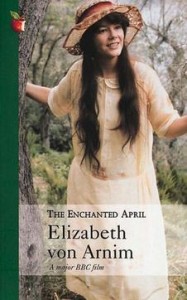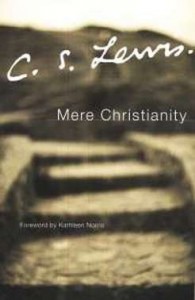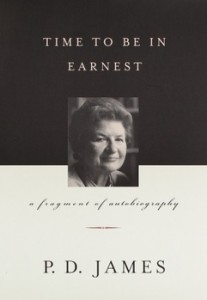 Part 2 of my 12/11/2011 post: Following, in no particular order, are some of my favorite biographies, autobiographies, diaries, collected letters, etc.
Part 2 of my 12/11/2011 post: Following, in no particular order, are some of my favorite biographies, autobiographies, diaries, collected letters, etc.
Elizabeth von Arnim, who was born in 1866, wrote three books which are autobiographical in nature – Elizabeth and Her German Garden, The Solitary Summer, and All the Dogs of My Life. My favorite is the last, All the Dogs of My Life, written in her senior years. She tells her life story vis a vis the dogs she has owned in various phases of her life – starting with her happy childhood, going on through her problematic marriages – the first to a domineering Prussian minor aristocrat she dubbed the “Man of Wrath,” the second to the older brother of Bertrand Russell, a marriage which has been described as “disastrous” and which ended in acrimony and separation. When her first husband went broke, Elizabeth availed herself of one of the very few options women had in the 19th century to make a good living for themselves: she took up her pen and wrote a bestseller, and then another, and then another. Perhaps her best known work today is The Enchanted April as it was made into an Academy-award nominated movie in 1992. The Enchanted April also happens to be one of my favorite books. It is a celebration of female friendship with four women joining forces to escape a bleak gray rainy London by finding a resourceful way to rent an Italian castle that will immerse them in a Spring of “wisteria and sunshine.” The two who are married even manage to include their husbands in ways that heal frayed marital bonds. In All the Dogs of My Life, von Arnim’s resolutely cheerful but never cloying (and always reality-bound) personality shines through in full force. Note: Elizabeth von Arnim’s work is now in the public domain and much of it is available free online.
 C.S. Lewis’s Mere Christianity, Surprised by Joy, and A Grief Observed aren’t usually classed as autobiographies. But few books are more intimate or personal. From all that I’ve read about C.S. Lewis, once he’d espoused Christianity, he lived his belief. And he left a wondrous legacy in the clarity with which he explicated the case for Christianity, as well as the 24/7 challenges of living a Christian life. “Jack,” as his friends called him, didn’t sugarcoat Christianity. He didn’t “leave out the hard parts.” But neither did he take a hard denominational line to Christian belief and Christian living. “It is at her centre,” Lewis wrote, “where her truest children dwell, that each communion [of Christians] is really closest to every other in spirit, if not in doctrine. And this suggests that at the centre of each there is something, or a Someone … who speaks with the same voice.” Mere Christianity is one man’s examination of the human condition and his honest attempt to find a meaningful and hopeful answer.
C.S. Lewis’s Mere Christianity, Surprised by Joy, and A Grief Observed aren’t usually classed as autobiographies. But few books are more intimate or personal. From all that I’ve read about C.S. Lewis, once he’d espoused Christianity, he lived his belief. And he left a wondrous legacy in the clarity with which he explicated the case for Christianity, as well as the 24/7 challenges of living a Christian life. “Jack,” as his friends called him, didn’t sugarcoat Christianity. He didn’t “leave out the hard parts.” But neither did he take a hard denominational line to Christian belief and Christian living. “It is at her centre,” Lewis wrote, “where her truest children dwell, that each communion [of Christians] is really closest to every other in spirit, if not in doctrine. And this suggests that at the centre of each there is something, or a Someone … who speaks with the same voice.” Mere Christianity is one man’s examination of the human condition and his honest attempt to find a meaningful and hopeful answer.
 P.D. James, whose first mystery novel, Cover Her Face, was published when she was 42, has known phenomenal success. Her novels are regarded as not only mysteries – but also as literary novels. James’s dark novels startle and intrigue, as all good mysteries should do, and leave you feeling enlightened as she peels back layer after layer disclosing her characters’ true motivations. In her book, Time to Be in Earnest, subtitled “a fragment of autobiography,” she shares her thoughts on a variety of subjects – ranging from details of her earliest years, her observations on the development of the mystery genre, and the sorrows of her marriage to Connor White, a doctor who returned from service in World War II so damaged he had to be institutionalized intermittently until his death in 1964, two years after Cover Her Face was published. The parts of herself James shares in Time to Be in Earnest remind us of the great rewards an earnest dedication to craft can bring, but also remind us that those we deem great successes have often borne burdens we might never guess at.
P.D. James, whose first mystery novel, Cover Her Face, was published when she was 42, has known phenomenal success. Her novels are regarded as not only mysteries – but also as literary novels. James’s dark novels startle and intrigue, as all good mysteries should do, and leave you feeling enlightened as she peels back layer after layer disclosing her characters’ true motivations. In her book, Time to Be in Earnest, subtitled “a fragment of autobiography,” she shares her thoughts on a variety of subjects – ranging from details of her earliest years, her observations on the development of the mystery genre, and the sorrows of her marriage to Connor White, a doctor who returned from service in World War II so damaged he had to be institutionalized intermittently until his death in 1964, two years after Cover Her Face was published. The parts of herself James shares in Time to Be in Earnest remind us of the great rewards an earnest dedication to craft can bring, but also remind us that those we deem great successes have often borne burdens we might never guess at.

No Comments